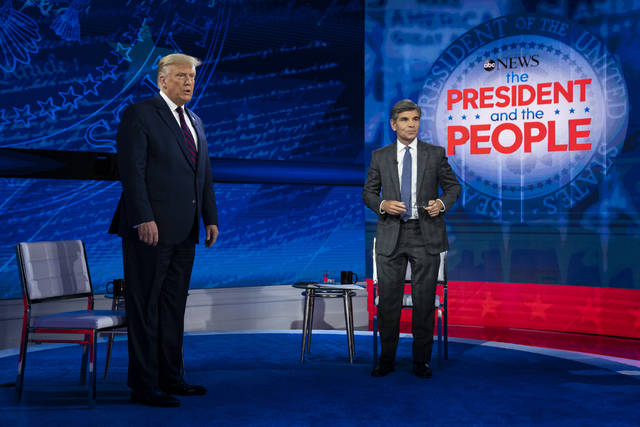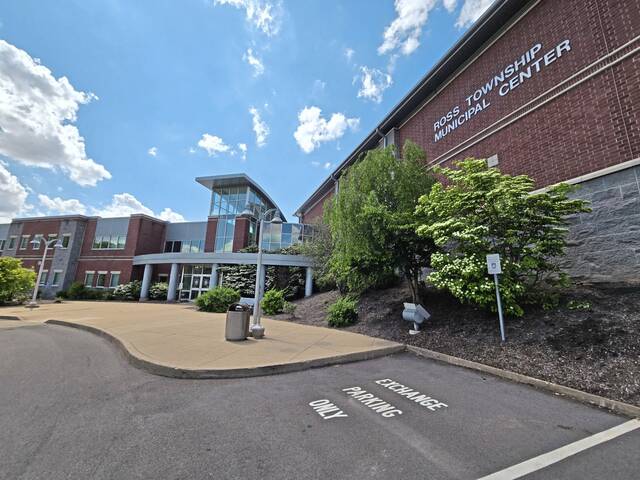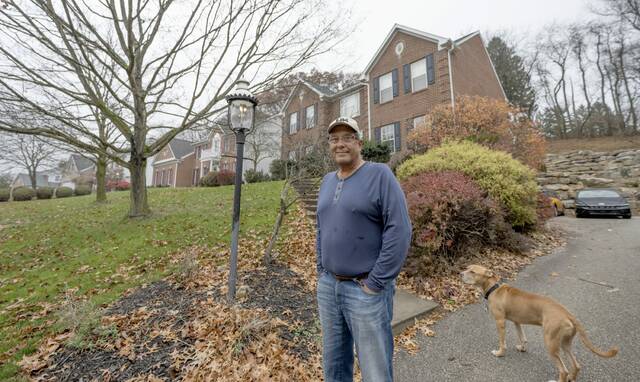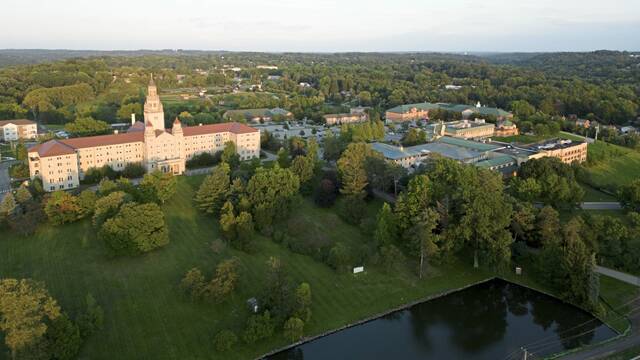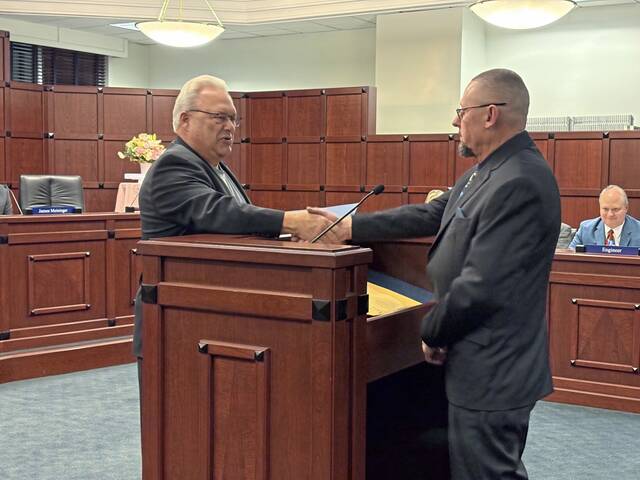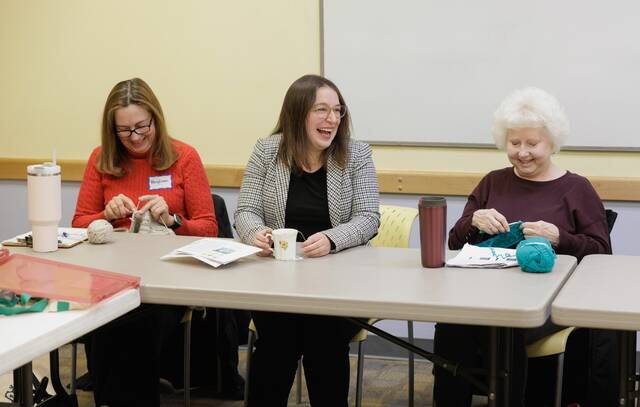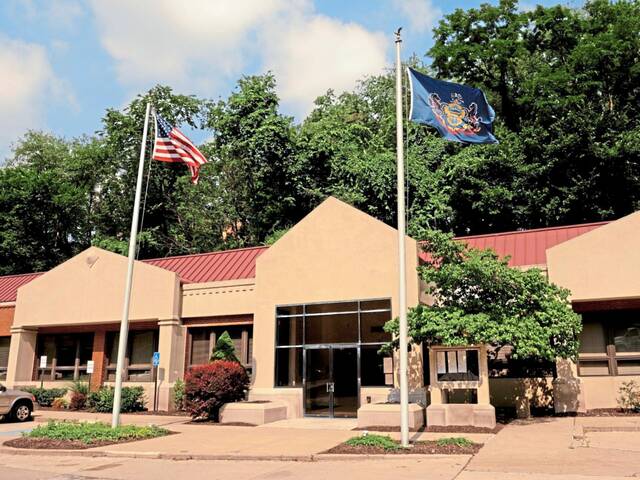Currying favor with Pennsylvania voters such as Laura Galvas, Alexandra Stehman and Flora Cruceta could prove crucial in the battle to claim Pennsylvania’s 20 Electoral College votes this fall.
Like the other participants in ABC’s Philadelphia Town Hall — where they had an opportunity to question President Trump last week — the women were selected from focus groups across the state because of their status as undecided voters in the presidential race.
Stehman, a software consultant from McCandless; Galvas, a registered nurse from Shaler; and Cruceta, a recently naturalized citizen from the Dominican Republic and now of Harrisburg, were among about a dozen voters from across the state selected for the televised event.
No question, such voters are a small fraction of those likely to go to the polls Nov. 3. A statewide poll conducted in late August suggested about 6.6% of the registered voters remained undecided in the race for president.
Nationally, polls indicate such voters are growing ever rarer. A Monmouth University national poll conducted this month found only 3% of voters are undecided in what has become a highly polarized electorate.
Former Vice President Joe Biden, who continues to lead in national polls, held a 7 point lead over Trump in last month’s statewide Franklin & Marshall College Poll. But both Trump and Biden have made Pennsylvania, where Trump won by a margin of 44,000 votes in 2016, a priority. The two have visited the state, which boasts 20 Electoral College votes, repeatedly this month.
G. Terry Madonna, a pollster and political scientist at Franklin & Marshall College, said voters at the margins could make a difference in a tight race.
“You can’t rule that out. Things could happen between now and Nov. 3. Small factors can make a difference,” Madonna said. He said combination of factors — including a very strong showing for Trump in Southwestern Pennsylvania counties with Democratic registration edges, coupled with Clinton’s totals in Philadelphia where she failed to match Barack Obama’s margins — combined to swing the state’s 2016 vote to Trump.
Back in Shaler, Galvas — who said she had always voted Republican in prior presidential elections — came away from this week’s town hall disappointed with Trump’s response to her question.
“In light of ongoing protests surrounding the deaths of George Floyd, Breonna Taylor, and the recent shooting of Jacob — Jacob Blake, do you feel racial injustices are occurring in this nation? And if so, what can be done to address them?” she asked.
While he conceded that the incidents she referenced were “tragic events,” he went on at length to defend police.
“Ultimately, he did not answer my question. He did not acknowledge it. I would have been shocked if he did,” she said.
Galvas said she won’t be voting for Trump; nor will she vote for Biden.
“I don’t know who that leaves,” she said.
In Pennsylvania, voter options in the state tightened up this week. When the Pennsylvania Supreme Court removed Green Party presidential candidate Howie Hawkins from the state’s presidential ballot, saying he had not followed proper procedures, Jo Jorgenson, the Libertarian candidate, was left as the sole third-party choice.
Like Galvas, Cruceta was disappointed with the president’s response to her question.
The young woman who said she came to the U.S. legally in 2006 and is excited about her first presidential election, asked Trump what he would do to make things easier for more immigrants to become citizens and vote.
Trump briefly mentioned working on a new merit-based immigration system, then went on to talk about covid-19.
Cruceta told ABC News the president, who offered his sympathies on her mother’s recent death from cancer, may have misunderstood her and thought it was from covid-19.
She said she remains undecided in the upcoming election.
“The answer he gave me makes me think that if I vote for him, the immigrants that came here without papers — because we have many people like that — they’re not going to have any hope from him because what he wants, what he says he wants, is people to come here legally,” she told ABC.
Stehman, who sat out the last election, said she was disappointed in the answers Trump gave to most of her fellows at the town hall.
“Clearly, he was not prepared. It was very disappointing,” Stehman said.
She asked him about recent reports that he repeatedly referred to combat veterans as “suckers” and “losers,” asked that amputees be barred from military parades and disparaged the late Arizona Sen. John McCain’s service.
“It was a great opportunity for him to express support for them. … Instead, he covered it up with the usual excuse ‘fake news,’” Stehman said.
“I will definitely be participating in this election,” Stehman said. “We really need a new leader. We need someone who can lead us to unity, not further race wars and division. If we want to make America great again, we need to get to great. And America needs to be great for all of us. It can’t just be great for 2 or 3%.”


